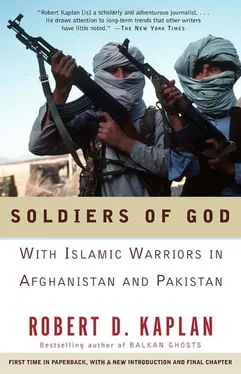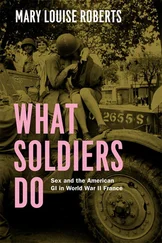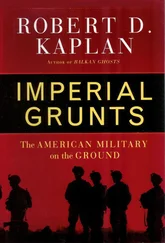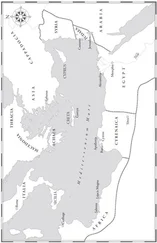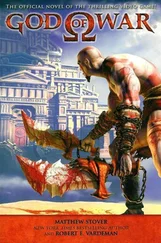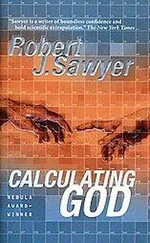Shuster pleaded his case to Din Mohammed: Abdul Haq and the other alliance leaders were the way around Zia’s machinations. By accepting the invitation from Perez de Cuéllar’s office, which Shuster was asked to help relay, Haq could become, overnight, a unifying figure in the mujahidin alliance, overshadowing Hekmatyar and thus blunting the force of Zia’s gambit without openly crossing him. Also, at that very moment in mid-1988, Ahmad Shah Massoud was forming a grand alliance of Tajik, Turkoman, and Uzbek commanders all over northern Afghanistan. With the Soviets starting to pull out of the country, it was critical that a Pathan commander get a quick dose of diplomatic legitimacy. It was time, Shuster dared to say to the graybeard Haji, for the Pathans “to stop looking backward to their own suffering and to start showing political ability.” And whether Din Mohammed liked it or not, Abdul Haq was already being thought of in Peshawar as a politician, a role for which he had greater talent than several of the seven party leaders.
Even so, Shuster pointed out, whatever took place in New York between Haq and UN officials would probably turn out to be of little relevance, since the United Nations served only Soviet interests. The most important thing was how Abdul Haq’s visit would be perceived in Peshawar by the refugees and party leaders. Shuster, ever the realist, was less optimistic about toppling the Kabul regime than anyone else I knew on the Frontier. He desperately wanted Haq to take over the mujahidin alliance because he knew that if Hekmatyar and the Pakistanis continued to run the war, the guerrillas would falter once the Soviet troop withdrawal was completed — which is exactly what happened.
After the final, four-hour session with Shuster, in broken English, Din Mohammed relented. Shuster had merely played back to him the Haji’s own private thoughts in a more concise, pointed form. Abdul Haq departed for New York five days after Shuster left Peshawar. Haq’s visit to the United Nations helped force Hekmatyar out of the chairman’s post in mid-June 1988. This proved, however, to be only a temporary setback for Hekmatyar.
During his last days in Peshawar, Shuster would wait in his hotel room or in the dim, gloomy dining hall at Dean’s Hotel for Abdul Haq’s driver to fetch him. Haq would be reclining in the back seat of the well-upholstered Toyota Corolla with darkened windows like some mafia don, massaging his injured right foot and moving over to make room for his friend beside him. In the car, Shuster would begin patiently making his case about every nuance of the military and diplomatic struggle facing the mujahidin. Shuster could handle Haq, who occasionally fell into bad moods and acted like a spoiled child — as when he refused to answer calls from the State Department while recovering from his mine injury in the Pittsburgh hospital. (Actually, Haq was convinced that the Americans were trying to kill him. The reason? Since the U.S. government was paying his medical expenses, Washington regulations stipulated that he fly on an American carrier on the last leg of his journey to the United States. In horrible pain, Haq was forced to wait hours at a London airport for a connecting flight.)
Faced with Shuster’s arguments, Haq would ease into a smile. He’d make a joke about getting diarrhea from the food at Dean’s and ask about the latest gossip in the foreign community. Shuster would in turn loosen up. As though they were on stage, they would look deep into each other’s eyes when they talked. There was something a bit pretentious about the way they acted in each other’s presence. It was a self-conscious dialogue. Each was aware that the other came from the other side, and that was perhaps why, although they argued, they never really fought. What kept the relationship from being a cliché was the fact that they had been together under life-threatening conditions.
In the early years of the war, whenever Abdul Haq was in Peshawar he went everywhere on his motorcycle and ate many of his meals in local Afghan restaurants with a large group of friends. Assassinations by KhAD had later forced him out of public places and into a protected car. His world had narrowed, and consequently Shuster’s role in it loomed larger. While John Gunston was the brash, soldierly comrade — the good mate who was forever slapping you on the back — Shuster was a sounding board for ideas with whom Haq could have late-night heart-to-hearts and do what was impossible to do with another Pathan: talk about his fears and vulnerabilities.
Haq felt himself to be a man alone. Even to his older brothers he wouldn’t talk about many aspects of his Kabul operation, which he saw as something he created on his own without their help. He spent little time with his wife. Unlike other Pathans, he was satisfied with only two children and didn’t want any more — something she couldn’t understand. Like other mujahidin commanders I’ve met, he appeared to view sex as an undisciplined act of self-indulgence — something that Westerners needed, not toughened Pathans like himself. Sometimes he didn’t tell his wife when he was leaving Peshawar to go to war inside Afghanistan. At home he smoldered. His wife and other family members feared his temper, which could turn violent. This fear was mixed with awe after his mine injury, when even deliberate pampering by the women in the family failed to soften his disposition. When his sister pleaded with him to talk, he once responded, “What do you know? You’re only a woman.” The one woman he felt truly at ease with was his mother. He always told her when he was going on jihad.
Charles Lindholm, a Columbia University anthropologist who lived for two years in a Pathan village, observed that the Pathans “live within a system which obliges men to present themselves as completely self-reliant…. Suspicion, defensiveness, bravery, vengefulness, pride, envy,” and “a Hobbesian vision” characterize their world view and interpersonal relationships — meaning, the Pathan can trust no one but an outsider “to fill the role of friend.” This was the basis of friendships between British colonial administrators and tribal Pathans in the last century.
At first I dismissed Lindholm’s analysis as mere anthropological twaddle. But there was clearly something to it. Haq’s men were known to resent their commander’s emotional dependence on foreigners, but Haq required these friendships. There was a side of his personality that could find release only with outsiders. He needed contact with values that were vastly different from his own. And this need increased when he was sidelined in Peshawar, recovering from the mine injury, at a time when the Soviets were starting their withdrawal and the war was entering a complex military and diplomatic phase that forced him to think in ways that he was not used to.
By journalistic definition, Haq was a Moslem fundamentalist. He prayed five times a day. He kept the Ramadan fast. He didn’t smoke or drink. When traveling, he refused to wear Western clothes or eat Western food: in London to meet Prime Minister Thatcher, he wouldn’t eat in a Moslem Lebanese restaurant until the cook assured him that the food was hallal. The idea of a free Afghanistan not ruled by Islamic law was anathema to him. The media, and especially American think-tank specialists, sometimes lumped Haq and Hekmatyar together in the same category as “Iranian-style fundamentalists.” But with us Haq laughed, made jokes, and liked to gossip. And he was not driven by ideology. He was the only man in all the fundamentalist parties whom the nonfundamentalist Afghans, especially the intellectuals, liked and respected. I kept asking myself whether, in the final analysis, Haq was, in effect, just a military tool of others in the alliance — and in his own family, in particular — who were fundamentalists.
Читать дальше
